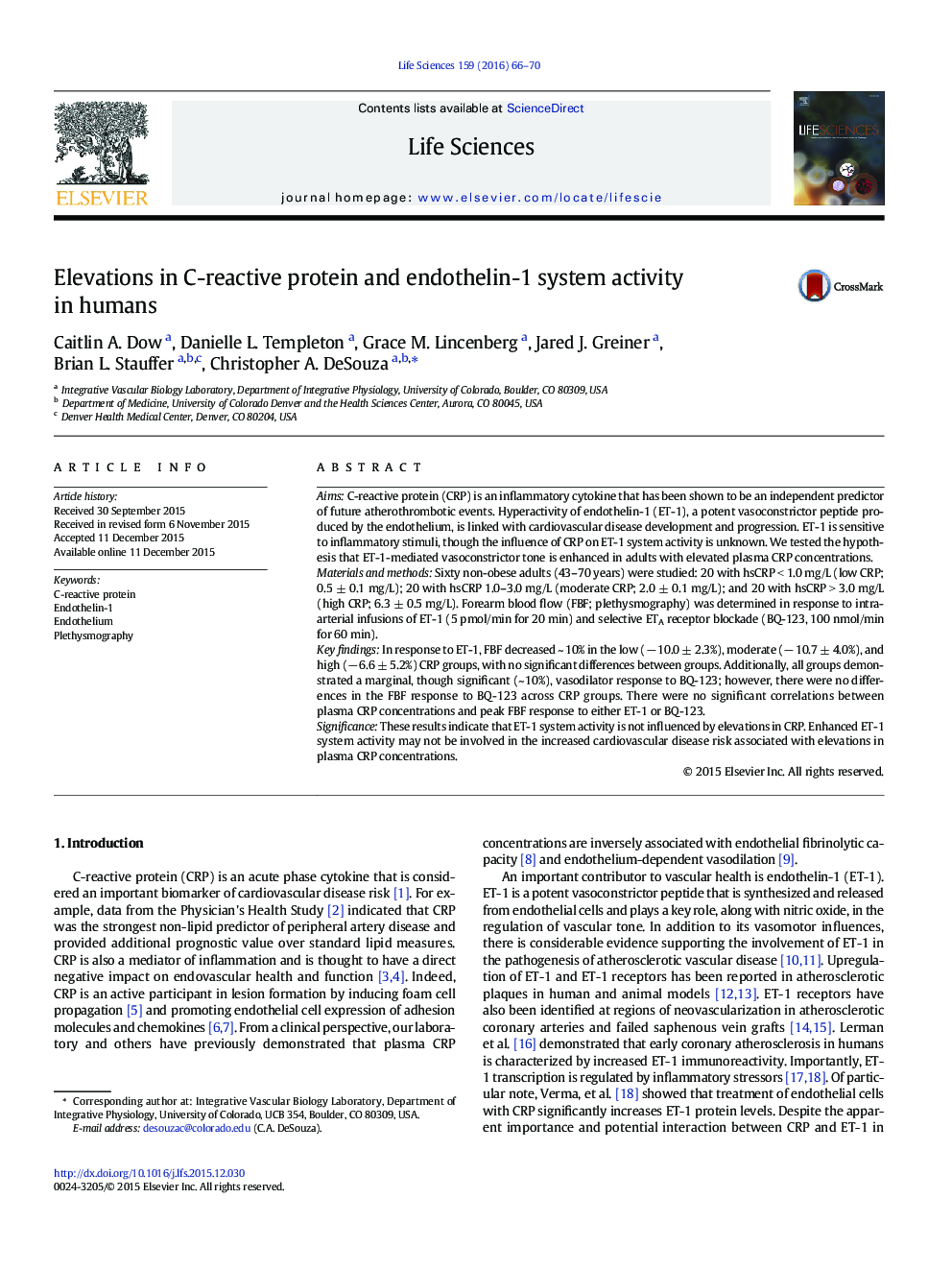| Article ID | Journal | Published Year | Pages | File Type |
|---|---|---|---|---|
| 5841302 | Life Sciences | 2016 | 5 Pages |
AimsC-reactive protein (CRP) is an inflammatory cytokine that has been shown to be an independent predictor of future atherothrombotic events. Hyperactivity of endothelin-1 (ET-1), a potent vasoconstrictor peptide produced by the endothelium, is linked with cardiovascular disease development and progression. ET-1 is sensitive to inflammatory stimuli, though the influence of CRP on ET-1 system activity is unknown. We tested the hypothesis that ET-1-mediated vasoconstrictor tone is enhanced in adults with elevated plasma CRP concentrations.Materials and methodsSixty non-obese adults (43-70 years) were studied: 20 with hsCRP < 1.0 mg/L (low CRP; 0.5 ± 0.1 mg/L); 20 with hsCRP 1.0-3.0 mg/L (moderate CRP; 2.0 ± 0.1 mg/L); and 20 with hsCRP > 3.0 mg/L (high CRP; 6.3 ± 0.5 mg/L). Forearm blood flow (FBF; plethysmography) was determined in response to intra-arterial infusions of ET-1 (5 pmol/min for 20 min) and selective ETA receptor blockade (BQ-123, 100 nmol/min for 60 min).Key findingsIn response to ET-1, FBF decreased ~ 10% in the low (â 10.0 ± 2.3%), moderate (â 10.7 ± 4.0%), and high (â 6.6 ± 5.2%) CRP groups, with no significant differences between groups. Additionally, all groups demonstrated a marginal, though significant (~ 10%), vasodilator response to BQ-123; however, there were no differences in the FBF response to BQ-123 across CRP groups. There were no significant correlations between plasma CRP concentrations and peak FBF response to either ET-1 or BQ-123.SignificanceThese results indicate that ET-1 system activity is not influenced by elevations in CRP. Enhanced ET-1 system activity may not be involved in the increased cardiovascular disease risk associated with elevations in plasma CRP concentrations.
